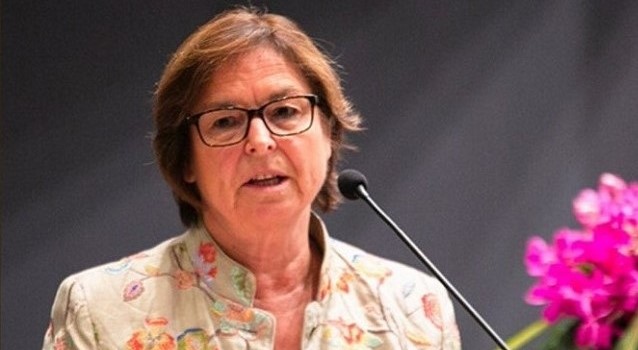The informal drafting group for a possible high-level declaration on the sound management of chemicals and waste beyond 2020 held its fourth virtual meeting, advancing discussion on the elements to be included in the declaration.

The declaration is expected to be presented for adoption during the fifth session of the International Conference on Chemicals Management (ICCM5). Addressing the meeting of the informal drafting group on March 9, 2021, ICCM5 President Gertrud Sahler said the indefinite postponement of IP4 and ICCM5 means that more time is available for discussing the declaration.
She said the declaration should adopt the new framework of the SAICM successor agreement while “paving the way” for stronger political commitment at international and national levels.
A first draft of the declaration was circulated on December 23, 2020 and was first discussed during the third virtual meeting on February 9, 2021. According to the co-facilitators’ summary of the March 9 meeting, the discussion addressed the following.
On illegal/legal traffic, some suggested focusing on risks of exposure rather than on the harmful characteristics of chemicals, while others emphasised impacts and mentioning double standards with regards to exporting harmful chemicals.
Regarding stronger links with the SDGs, as well as with the climate and biodiversity clusters, discussions focused on the term “safe” management of waste, non-chemical alternatives, and chemicals and waste as a cross-cutting issue. The group agreed that chemicals could be referred to as a prerequisite for achieving the SDGs. One participant suggested aligning the high-level declaration with SDG12 (sustainable consumption and production).
On the science-policy interface (SPI), participants agreed on the need for further discussions during the intersessional process to define the functions, characteristics, and roles and responsibilities of such an SPI. Participants also stressed the importance of: an intergovernmental platform; ensuring multi-disciplinarity and independence of experts; and involving all stakeholders in the nomination of experts.
Several participants supported a specific reference to the precautionary principle in the declaration. A virtual working group on the science-policy interface recently concluded its work and issued recommendations for consideration at ICCM5.
Regarding capacity building, finance, and technology transfer, one regional group called for reference to an independent global fund that would support implementation of the new instrument. A stakeholder said the text on the Global Environment Facility (GEF) should refer to programming rather than replenishment.
Several participants suggested maintaining a placeholder in the text to possibly include reference to fees, the “polluter pays” principle, and internalisation of costs. The placeholder would be revisited based on the outcome of the Virtual Working Group on Financial Considerations.
Regarding gender, one participant said the declaration should focus on all vulnerable groups and include a gender approach, while another suggested mentioning the generation of gender-disaggregated data in the text.
The group also discussed terminology. Regarding use of “sound” versus “safe and effective” management of chemicals and waste, participants agreed using the agreed language of “sound” is preferable. Participants did not agree on a clear preference with regards to harmful or hazardous substance or hazardous chemical.
However, several participants said the term “harmful” implies a broader scope. Participants agreed to use both “sustainable” and “green” chemistry in conjunction. A participant called for reflecting in the text that both concepts are used as a guide for substitution and for the design of products and new materials.
The fifth meeting of the informal drafting group will meet on May 4, 2021. The informal drafting group is co-facilitated by Kay Williams (UK) and Angela Rivera (Colombia).
